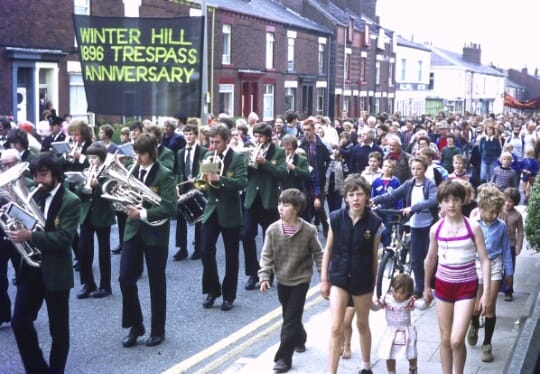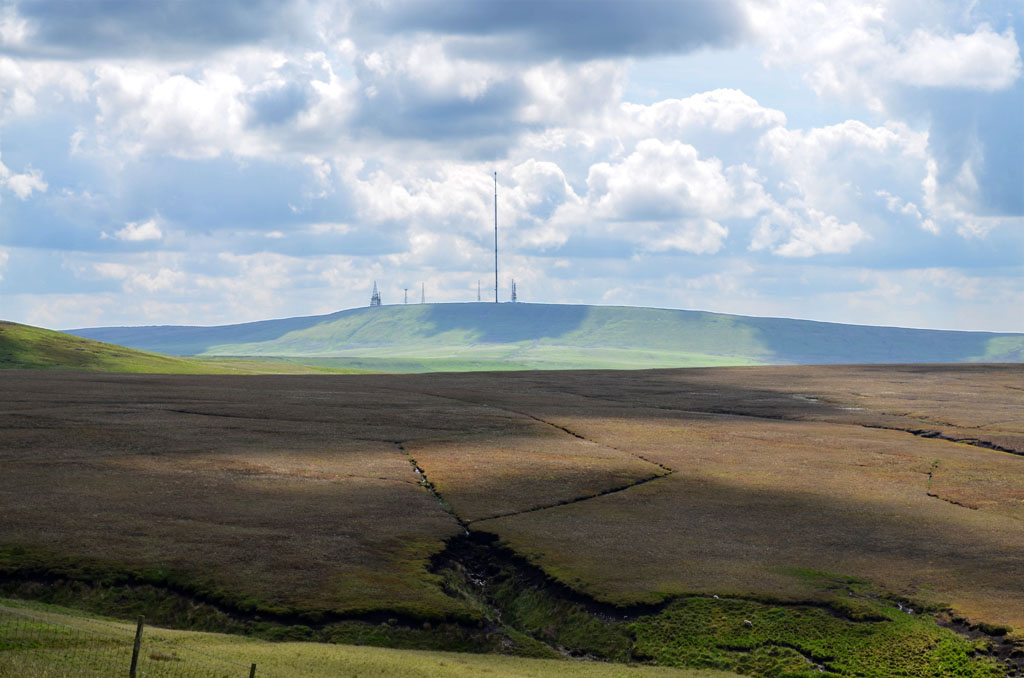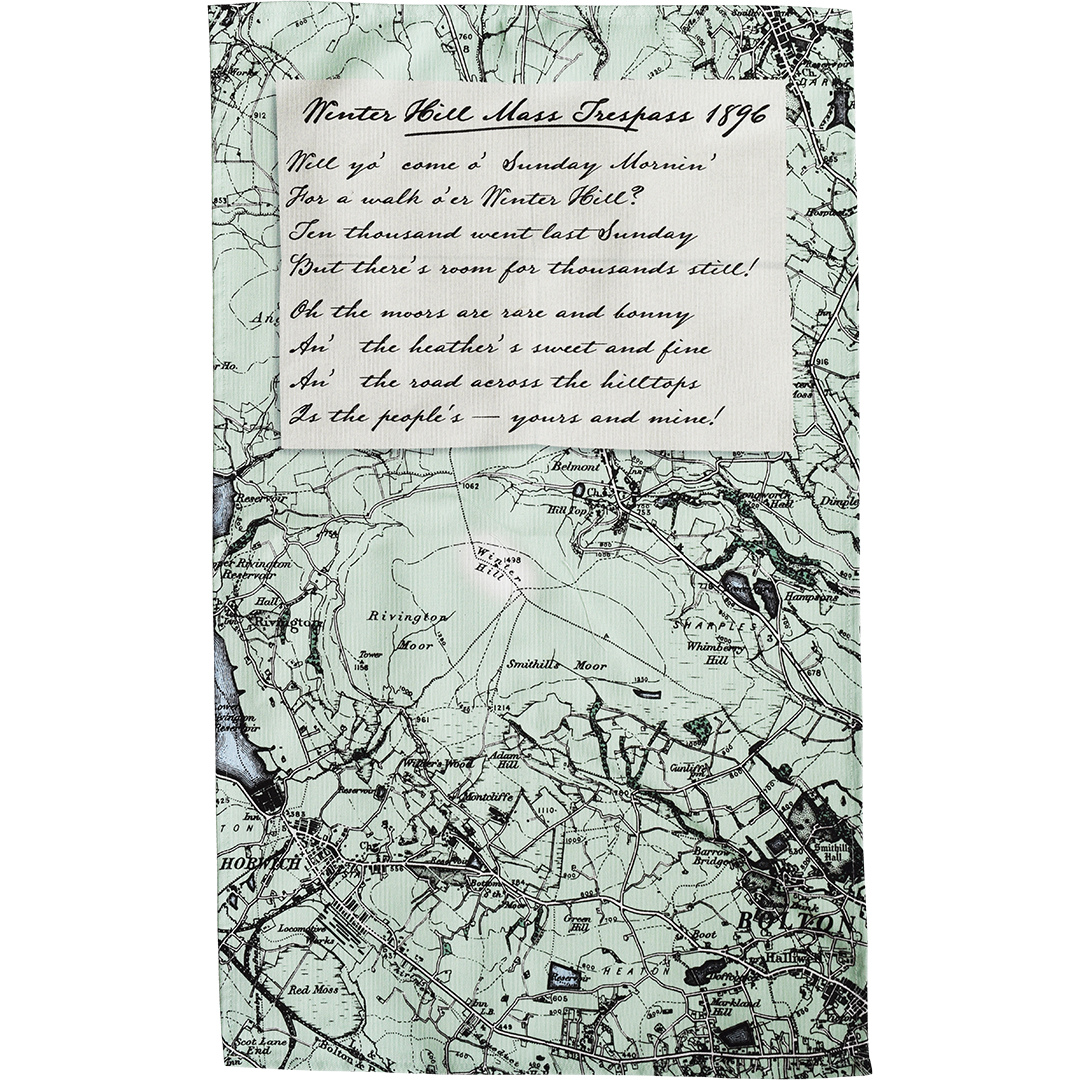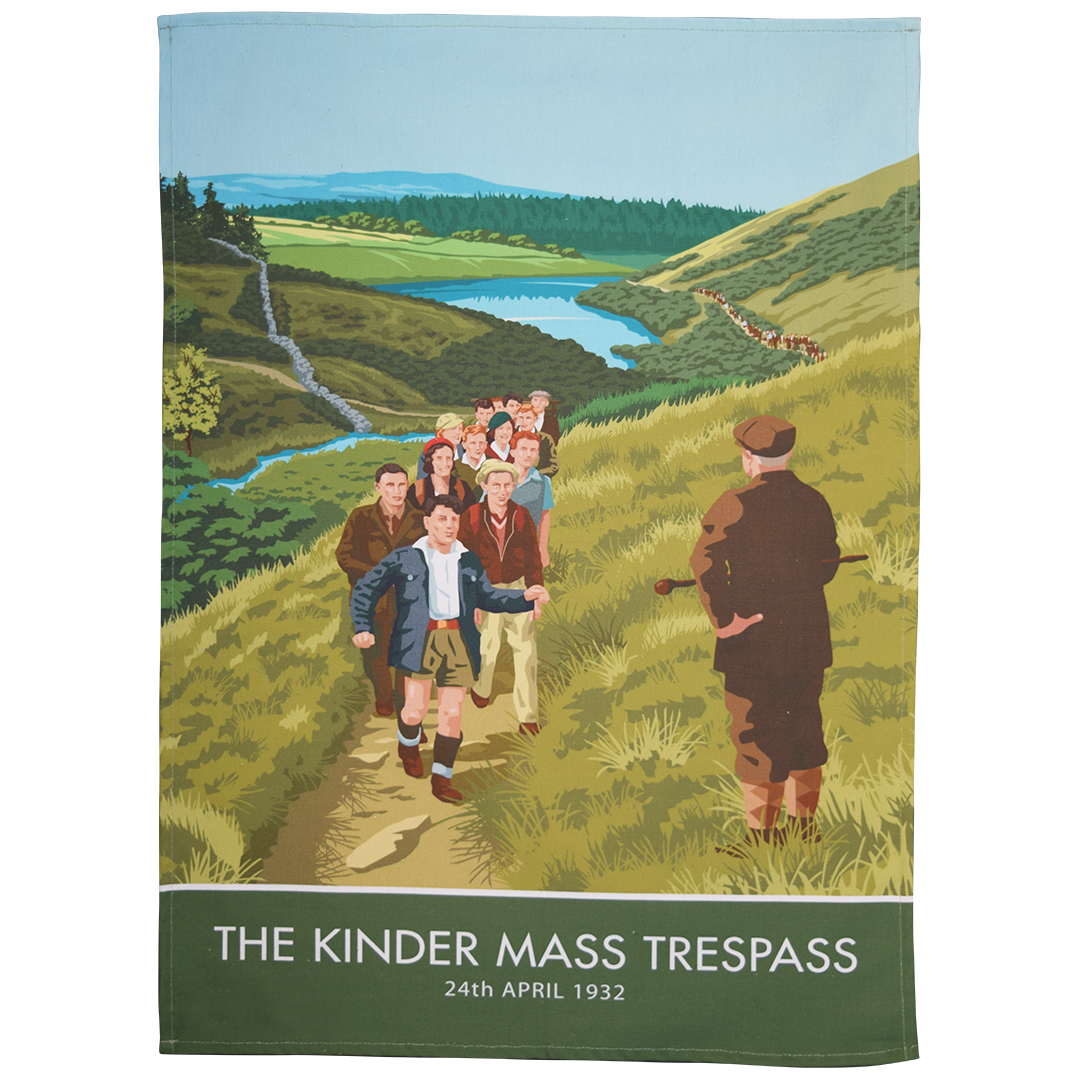Monarchs of the Moorlands: The Winter Hill Mass Trespass of 1896
Posted by Pete on 6th Sep 2022

On this day in history, thousands of workers from Bolton marched over Winter Hill to claim the right to roam...
There's an unmistakeable shift in British radical history around the time of the Industrial Revolution, when radicalism seemed to become a more and more urban phenomenon.
As the country industrialised, stories of
peasant revolts are replaced by stories of factory strikes and street battles.
But even as urban issues became more prominent in radical circles, rural issues remained incredibly important to working people up and down the country.
And by the end of the nineteenth century, one of the major issues was of course the Right to Roam: the freedom to enjoy the open countryside, regardless of your wealth.
Our new Winter Hill Mass Trespass tea towel, celebrating the people of Bolton who took part in Britain's biggest ever mass trespass
Click to view our Winter Hill Trespass tea towel
For thousands of workers who had to toil in polluted and cramped cities just to survive, rambling in the adjacent countryside was a lifesaver.
The hills and moors of England offered a healthy escape, and food for the soul in an otherwise hard existence.
In the words of Allen Clarke, Lancashire socialist and author of
Moorlands and Memories:
“Sit down here, on a summer’s day, on the green moorland under the blue sky, and though you own not a yard of land nor a stick of property, you are on a throne, and king of the world – a happier and far more innocent king than any ruler who ever held tinsel court and played havoc with the destiny of nations – you are monarch of all the magic of the moorlands, of healthy air for the lungs, of Nature’s pictures for the eye, of Nature’s music for the ear…”
You’d have to be fanatical to oppose such a simple and inoffensive right.
But sadly there were plenty of fanatics among the rural landowning class, many of whom wanted urban workers herded into the cities and kept off ‘their’ land.
And of course, the people fought back.
The Kinder Mass Trespass of 1932 was an iconic moment in the battle for access rights across Britain
Click to view our Kinder Trespass tea towel
This class conflict led to a string of pitched battles from the 1890s through to the 1930s.
Tory landowners would close off footpaths which had been customarily open to the general public. In response, local left-wing activists would organise mass trespasses to push back.
The most famous of these was the
Kinder Scout Mass Trespass of 1932. But it was not the biggest…
In the summer of 1896, Colonel Richard Ainsworth, a Tory aristocrat who owned land on the West Pennine moors, closed off the popular footpath which led up to Winter Hill.
Right next to Bolton, a satellite town of the industrial megacity of Victorian Manchester, the Winter Hill path was often trod by local workers during their precious little leisure time.

Winter Hill, above Bolton (Photo by Steve Glover)
So, when Ainsworth tried to deny them even that small comfort, the Boltonians got angry.
The local branch of the Social Democratic Federation (SDF), a Marxist organisation which would soon go on to cofound the Labour Party, organised a procession along the Winter Hill path on 6 September 1896.
Its purpose?
“To test the right of way.”
No fewer than ten thousand people joined.
They easily stormed past Colonel Ainsworth’s feckless gamekeepers, and marched on, up to and over Winter Hill.
After the march, Allen Clarke wrote a song in local dialect, which urged people to claim their rights and join the next Sunday’s march:
"Will yo’ come o’ Sunday mornin’
For a walk o’er Winter Hill?
Ten thousand went last Sunday
But there’s room for thousands still!
Oh the moors are rare and bonny
An’ the heather’s sweet and fine
An’ the roads across the hilltops –
Are the people’s – yours and mine!"
The Winter Hill Mass Trespass carried on for another three weekends, reaching a peak of 12,000 protestors.
In the short term, the marchers didn’t win. The state (surprise, surprise) stood with Ainsworth in denying the public right of way.
And despite the legal efforts of Manchester lawyer, Richard Pankhurst (Emmeline’s husband), the supposed ‘ringleaders’ of the trespass were fined.
But Winter Hill made clear that radical protest wasn’t dead in the English countryside.
The public right of way we enjoy today was won by our trespassing forbears, from Winter Hill to Kinder Scout.
But to this day, access rights in England and Wales are far behind many European countries, including Scotland.
The 2000 Countryside & Rights of Way (CRoW) Act was a great step forward, but it only gave us a partial Right to Roam over about 8% of England.
Which is why we're celebrating the trespass on Winter Hill: not just as an important historical event, but as inspiration to all those fighting today for the freedom to roam.


